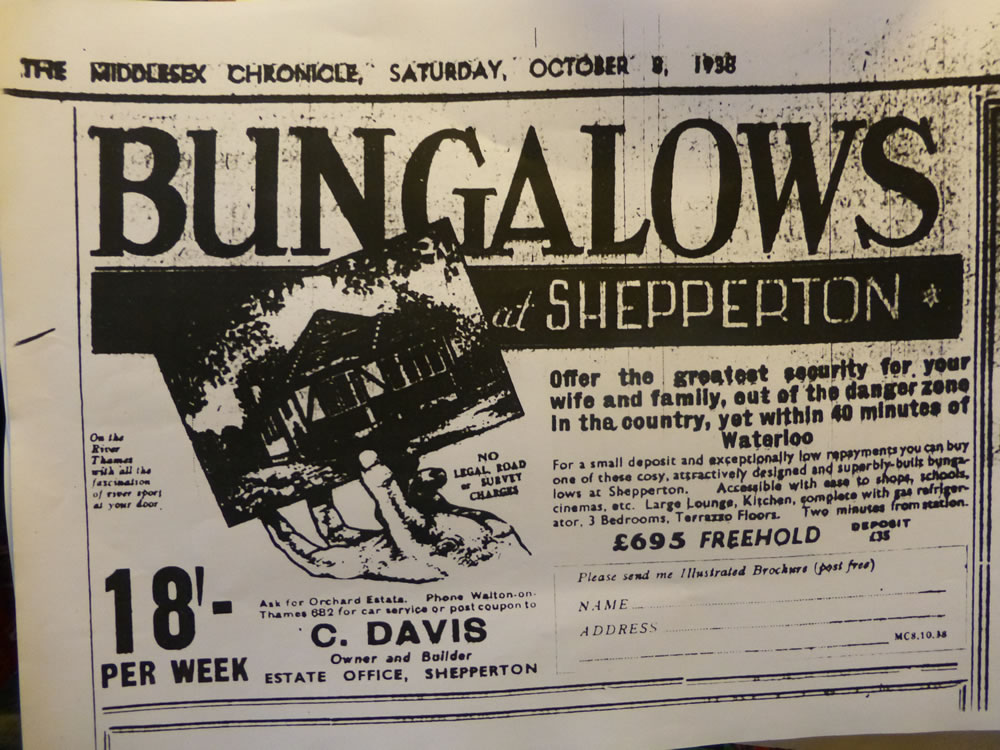In the absence of strong planning regulation during the interwar period, London sprawled outwards along main arterial roads and railway lines. Distant villages like Shepperton in the Middlesex countryside were targeted for new housing. In the months September to November 1938, The Middlesex Chronicle carried a block advertisement for Orchard Estate, a new development of bungalows situated close to Shepperton Cross. Readers were invited to send for an illustrated brochure. Appointments to view were encouraged by adding a telephone number for a (courtesy) car service and site office address.
Promotors claimed that the three-bedroom bungalows (imaged in the block advertisement as a ‘gift’ to be admired) represented true value for money. Priced at £695, with a deposit of £35 (a weekly mortgage repayment of 18 shillings), each “cosy, attractively designed and superbly built bungalow” had a large lounge, kitchen fitted with a gas refrigerator, and fashionable terrazzo floors Legal costs and survey charges were included ib the price.
Selling points emphasised accessibility to Shepperton railway station (2 minutes) and onwards to Waterloo (40 minutes!); and closeness to shops, schools and cinemas. Rather inelegantly, the banner headline for Saturday, 17th September, reads “Bungalows at Shepperton: The handiest place in which to live!”. Marketing also emphasised the quality of the local environment with “all the fascination of river sports at your door”
In anticipation of World War II, as early as October 1938 the Middlesex Chronicle reported on countywide activities connected with civil defence. Features articles covered a demonstration from Hounslow Heath on mechanical trench-digging equipment in the construction of air raid shelters; and weekly statistical reports under the heading “Join now and be prepared” on the campaign to enlist volunteers to five duty categories of Air Raid Precaution (ARP).
Sales agents preyed on this growing sense of public anxiety. On 8th October, the second headline of the original property advertisement was changed to read: “Bungalows at Shepperton offer the greatest security for your wife and family out of the danger zone, in the country”! Shepperton, in rural Middlesex, was considered to be safe from enemy action.
Three questions spring to mind regarding the success of these advertisements. Who purchased the properties, from where did they move, and why choose Shepperton?

